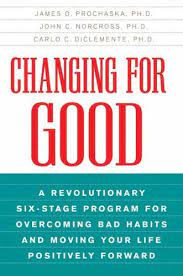
Narcissism - the underlying pain of narcissistic wounding
5 December 2023
“Narcissism is a condition in which a person does not love himself.”
- Thomas Moore
Today the word narcissism and narcissist is thrown around a lot, mostly as an insult.
But often we fail to understand the pain of the early ‘narcissistic wounding’ that underlies narcissistic behaviour. We only see the outward behaviour of selfishness, treating other people as objects, a lack of vulnerability.
Read more: Narcissism - the underlying pain of narcissistic wounding

Not seeing people as they really are - idealising and demonising
13 November 2023
Sometimes when listening to the radio in the morning I find myself internally commenting on a political story that’s being covered and thinking to myself, ‘That politician is completely hypocritical and manipulative - all they’re interested in is themselves.”
Or, if it’s someone speaking who I feel more warmly towards, I might think: “Thank goodness they’re speaking the truth, if only everyone would listen to them!”
Read more: Not seeing people as they really are - idealising and demonising

Parent-child dynamics in couple relationships
11 October 2023
Do you ever feel like your partner is treating you like a child, or perhaps the opposite, that they’re seeming a little childish and you feel a little bit like a parent? This is a common feeling in many relationships and it’s not a particularly healthy dynamic.
After all, who really wants their love relationship to sometimes resemble a parent-child dynamic?

Daring to be ourselves
18 July 2023
Authenticity has become a bit of a buzzword in recent years - we are urged to ‘be authentic’. I’m not always quite sure what it means. But I think there’s some truth in the idea that it’s generally better for people to be honest about themselves rather than pretend to be someone other than they are, in order to win approval.
This is one of the themes tackled by film screenwriter Charlie Kaufman in this video. I find a lot of what he says, and the way he expresses himself, inspiring.

What causes sex addiction?
5 June 2023
This is an issue that I've seen increasingly in my practice in recent years. Firstly, what is sex addiction? Although some people see it as an invented category used by Hollywood stars to justify their behaviour, for those suffering from it sex addiction is very much a reality.
And it's a reality that can cause them, and their partner if they have one, incredible stress and pain.
It describes any kind of sexual behaviour that feels out of control and is causing problems. This could include watching porn, paying for sex or sexting.
In recent years the understanding of addiction has broadened beyond substances, such as alcohol or drugs, to include mood-altering behaviours or activities, such as gambling and sex.

Why accepting and facing pain can make us happier
15 May 2023
In Julian Barnes’ book A History of the World in 10 1/2 chapters the narrator gets a sneak preview of heaven and discovers that it is an endless experience of pleasure - he plays golf for many years and gets so good he gets a hole in one every time, then he goes on to master every other sport, has constant access to the most delicious food and can have sex with beautiful women every night.
But he eventually realises there is something missing in this existence of endless pleasure and positive experiences.
Read more: Why accepting and facing pain can make us happier

What stage of the change process are you in?
13 April 2023
How does someone change? How do we let go of destructive or self-destructive ways of behaving?
Have you been through the process of trying to change something in your life but found that you don’t stick with the change? It could be giving up something like smoking, eating more healthily or an interpersonal problem such as finally having that difficult conversation with your partner that you keep putting off.

The power of shame
11 July 2022
“Shame derives its power from being unspeakable.”
- Brené Brown
Shame is one of the most difficult emotions to deal with and it’s one that we’re often not fully aware of even when we’re feeling it.
Clients who come to therapy often find that there is shame somewhere in the mix, when it comes to dealing with unhealthy behaviours they want to address.
- How to challenge destructive or self-destructive behaviour
- Tackling the problems of a low-sex relationship
- Self-compassion
- Can we allow ourselves to receive love?
- Can we allow ourselves to receive love?
- Therapy is not about ‘fixing’ but about enquiring into our pain
- When the ‘rescuer’ in the drama triangle gets fed up, there are problems ahead
- Letting go of how things 'should' be
- Getting over an affair or betrayal
- Are you ready to be 'radically honest'?


